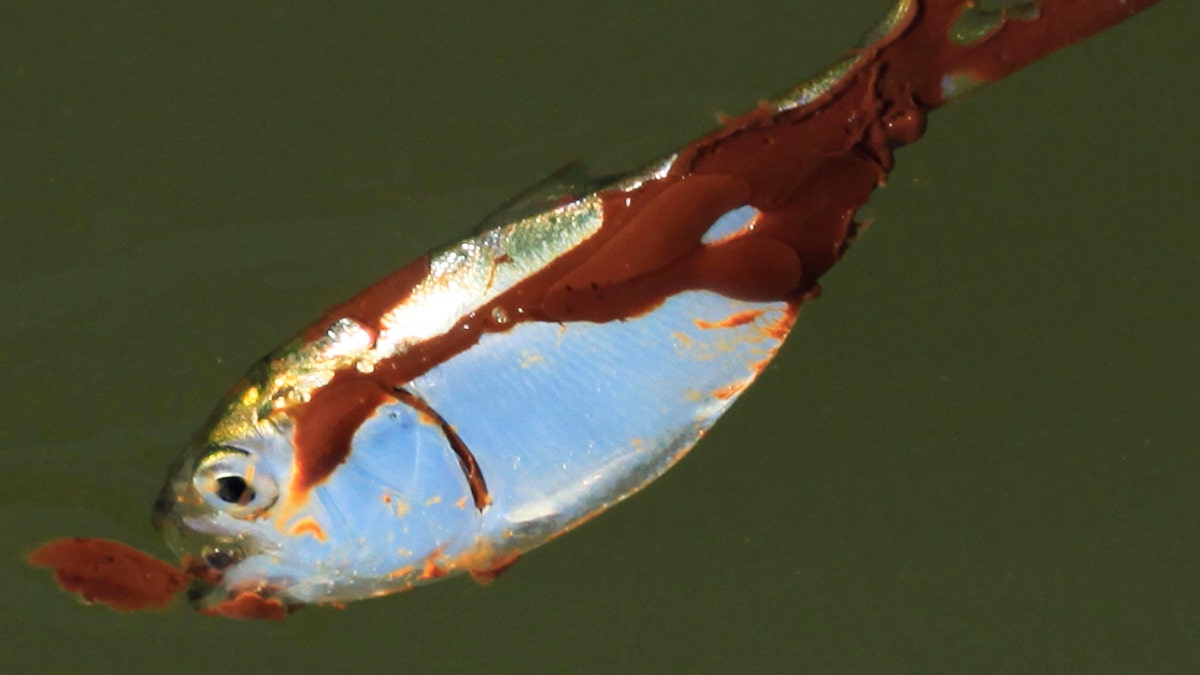
June 6: A small oil-covered fish lies on the water's surface at Bay Long off the coast of Louisiana. (AP)
The Food and Drug Administration allowed unsafe levels of contaminants in seafood after the BP oil spill in 2010, according to a new study.
Researchers from the Natural Resources Defense Council (NDRC) said the FDA seriously underestimated the cancer risk from contaminants that can accumulate in seafood when the agency allowed commercial fishing to resume in the Gulf of Mexico after the oil spill disaster.
The study found that by using flawed assumptions and outdated risk assessment methods, the FDA allowed contamination up to 10,000 times the level deemed safe, and failed to identify risks for pregnant women and children.
Based on the results, the NRDC filed a petition Wednesday asking the FDA to protect the public – especially pregnant women, children and people who eat a lot of seafood – by setting a standard that limits the level of polycyclic aromatic hydrocarbons (PAHs) in seafood.
PAHs are chemicals found in oil, industrial pollution and urban run-off that can cause cancer, birth defects, neurological delays and liver damage.
“Our findings add to a long list of evidence that FDA is overlooking the risks from chemical contaminants in food,” said study author Miriam Rotkin-Ellman at the NRDC. “We must not wait for people to get sick or cancer rates to rise, we need FDA to act now to protect the food supply.”
The study was published in the journal Environmental Health Perspectives.
